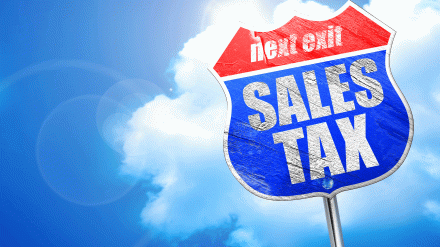Many churches mistakenly believe that their federal income tax exemption automatically extends to all taxes, including sales taxes. However, there are several exceptions to sales tax exemptions that churches must understand to remain compliant with state and local regulations.
When Are Churches Required to Pay Sales Tax?
Sales tax laws vary by state, with 45 states and Washington, DC, requiring sales tax collection. Each state’s statutes define when sales tax exemptions apply, so it is crucial to consult your state’s revenue department for specifics. Below are key considerations for when churches need to pay sales tax:
1. Providing an Exemption Certificate
States that exempt churches from paying sales tax require an exemption certificate to be provided to the seller. Without this certificate, or if it is incomplete, the seller is responsible for paying the sales tax. Some states issue exemption numbers, while others do not.
2. Payment Must Be from Church Funds
Purchases must be made using church funds, such as a church check or church credit card. Personal payment methods, such as an employee’s credit card or personal check, may not qualify for exemption. In some states, churches can request a refund of sales taxes paid by submitting receipts to the state’s revenue department.
3. Purchases for Exempt Functions Only
Most states allow churches to avoid paying sales tax on items directly related to their exempt functions, such as office supplies or computers. However, purchases for non-exempt uses, such as prizes for children’s events, are typically taxable. Similarly, items for a pastor’s parsonage are often considered personal and not ministry-related, so they may not qualify for exemption.
When Are Churches Required to Collect Sales Tax?
Churches often confuse their exemption from paying sales tax with an exemption from collecting it. However, most states require churches to collect sales tax on taxable transactions. Here are situations where churches must collect sales tax:
1. Sales of Tangible Property
Churches must collect sales tax on the sale of tangible items such as books, CDs, or sermon recordings. This applies even to items sold during church classes or events, depending on state regulations.
2. Fundraising Events
Many fundraising events, such as bake sales or craft fairs, involve selling taxable items. Most states collect sales tax on prepared food sales, though some offer exemptions for church events, like Wednesday evening meals.
3. Auctions
Most states require sales tax collection on items sold at auctions, although some states provide exemptions for charitable auctions. Churches should verify state-specific rules and structure auctions accordingly to qualify for exemptions where possible.
4. Craft Fairs and Festivals
Churches hosting events where booths are rented to individuals or businesses should take extra precautions. In many states, the “flea market” rule holds the host church liable for sales tax on items sold by vendors without valid sales tax permits. Churches can avoid liability by requiring booth renters, as well as speakers or performers selling goods, to provide a copy of their valid sales tax permits before participating.
FAQs: Exceptions to Sales Tax Exemptions
1. Are churches automatically exempt from all sales tax?
No, churches are not automatically exempt. Each state has specific rules about what purchases and transactions qualify for exemption.
2. Can a church use its sales tax exemption for personal purchases?
No, sales tax exemptions typically apply only to purchases made directly for church-related exempt functions. Personal items, such as those for a parsonage, are not covered.
3. Does a church need a sales tax permit to sell items?
In most states, yes. Churches conducting taxable transactions, such as selling books or holding fundraisers, must obtain a sales tax permit and collect applicable taxes.
4. What is the “flea market” rule, and how does it affect churches?
The “flea market” rule makes churches liable for sales taxes on items sold by vendors at church-hosted events unless those vendors have valid sales tax permits. Requiring proof of permits protects the church from liability.
By understanding exceptions to sales tax exemptions, churches can ensure compliance with state laws, avoid unnecessary liabilities, and maintain their tax-exempt status. Consulting your state revenue department or a tax professional is essential for clarity on specific scenarios.




